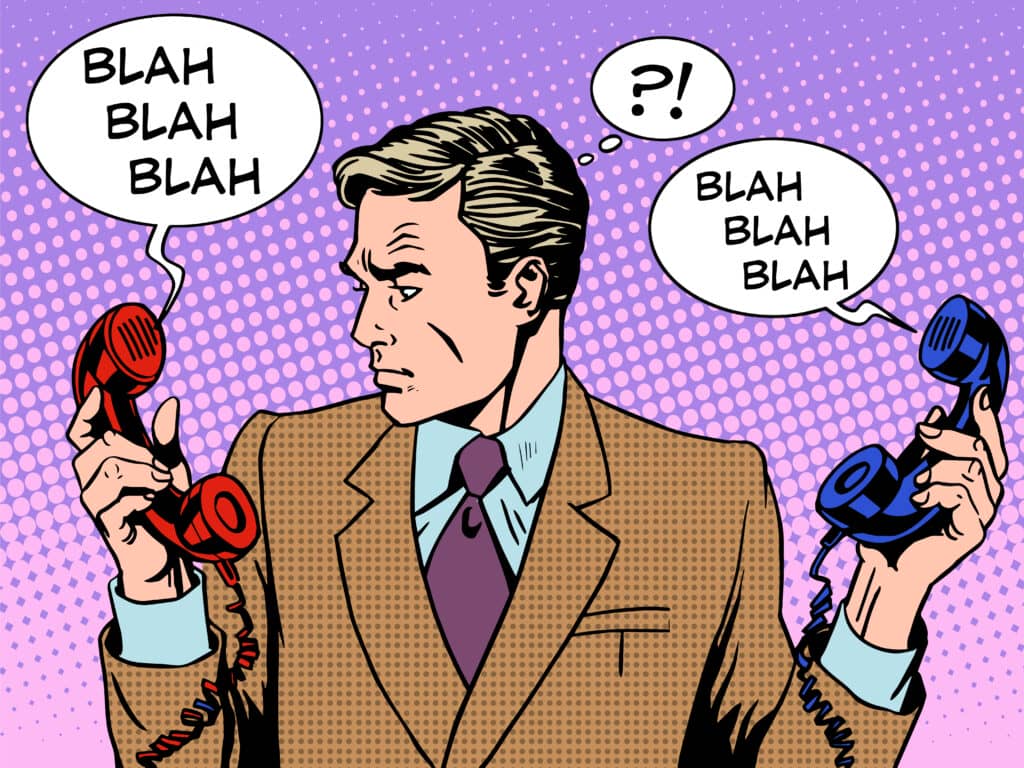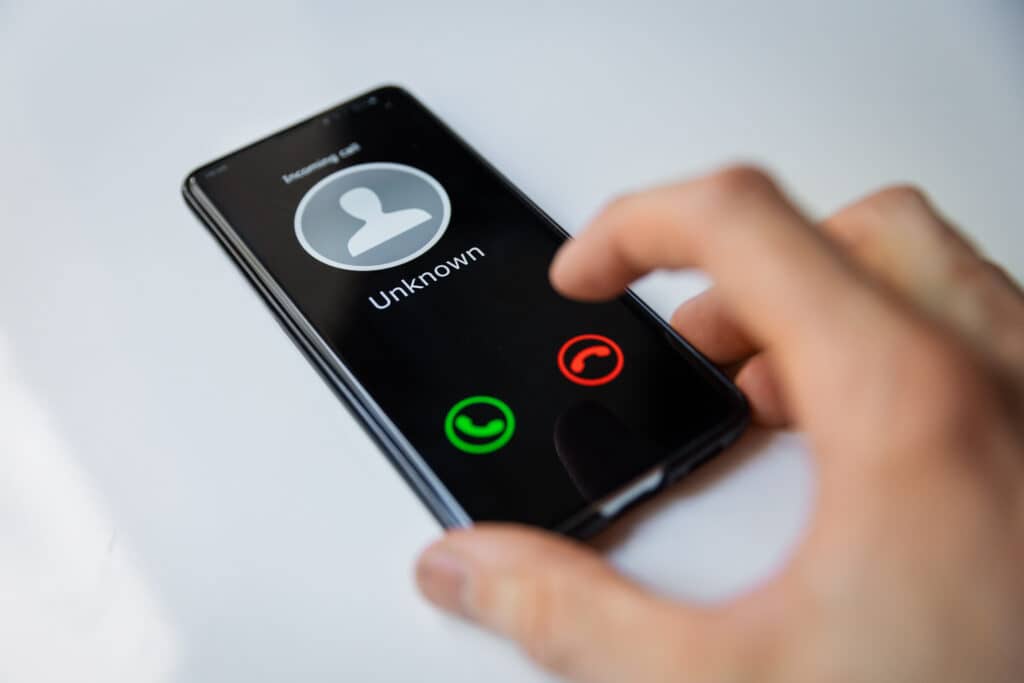A nuisance, a safety risk, and sometimes just a pain in the ‘head,’ spam calls are undesirable at their very best.
Many people wonder, “What happens if you call back a spam number?”
There are a few different, distinct possibilities.
One, you’ll most likely end up parting with your hard-earned money in vain.
Two, you may end up giving sensitive, private information to scammers.
Three, the callers will know that your number is active and owned by an actual person.
In short, only bad things result when calling back a spam number!
Even knowing this, many people may still have the inclination to return a spam call. We’re here to drill in why that’s a bad idea in the rest of this article!
Reasons for Calling Back a Spam Number

Firstly, we need to determine why anyone would want to spend time calling back an obvious spam number.
You have to know now: despite what you may see on YouTube, it’s very unlikely that you’ll be able to scam a scammer!
This is not a judgment on your intellect, because the playing field is by no means level. The spam caller has the time, resources, and motivation to keep calling back – and you just don’t have that.
So, why do people still call back a spam number, time and time again?
For one, people want to exact revenge on the callers. They’re probably angry that a spam call was made at such an ungodly hour, or so many times throughout their day!
Spam calls, when there’s scamming involved, often come late at night – which makes them particularly annoying. The receiver, therefore, may feel like teaching the caller a lesson through a verbal onslaught.
Secondly, some people think that they can reform the callers. However, this is also an exercise in futility as there’s no way you can convince them to “turn good”! The callers are not there to listen to sermons, but to make money.
Thirdly, scammers can sometimes make such a convincing case that people fall for calling them back! Mostly, it’s a call about a relative being sick or a friend in need.
Many people fall prey to these types of calls due to empathy toward their family and acquaintances.
Finally, sometimes people call back spam numbers because they’re simply not the sharpest tool in the shed (unfortunately).
That’s harsh, yes, but it doesn’t make it any less true. Scammers wouldn’t be so successful if the general public were “street-smart”. People call back all the time with a genuine interest in the offers, discounts, and subscriptions that are being peddled!
After going through all that, you might now be wondering what happens if you call back a spam number. We’ll try to answer your question in the next section!
Possible Outcomes When You Return a Spam Call

Scammers are sneaky, sly, and intelligent.
They’ll use simple yet effective techniques to fool people into believing things they want them to believe!
One of their most common tactics is calling someone late at night to make it seem like a more urgent matter.
Sometimes, they’ll learn as much information about the target as they can through social media and use it to scam them.
They also mask their numbers very well. One such technique is neighborhood spoofing, which is a method that conceals their telephone numbers to appear local. The scammer will ask for a call back from this number and leave urgent messages.
When you do call back, it’s always a win-win for the spammer and a lose-lose for the caller.
According to The Federal Communications Commission, these types of calls should never be returned! When you call a spam number back, among other things, you could be charged by the minute at an international rate.
That’s not the only outcome, however. Spammers can also collect useful information based on your call. This can include the time you called back, your voice, gender – even the area where you live can be obtained in some cases.
Additionally, you might end up giving sensitive information such as social security numbers, bank account details, information about your family and kids, etc.

The disclosure of this information can harm you, especially when combined with powerful hacking tools of scammers!
Even if they don’t get any sensitive information in the first round, they’ll now know it’s a working phone number.
With that, they can go online and fetch more details about you and come back at you with a different strategy. The next time, you might not be so lucky, and instead fall victim to an intelligent and well-crafted ploy.
One in a Million Chance of a Positive Outcome

When we check our phones and there’s a familiar number on our screen, we’ll always have an urge to call back.
This will be even more the case if the Caller ID shows a number that is similar to our local numbers!
Whenever we see this, we might be curious as to whether someone called in an emergency. Maybe it was your friend in need, or it could be the doctor calling about your latest visit.
In any case, calling back is not always a good choice (despite what etiquette might say). However, there are some stories– even if they’re scarce – where people had positive outcomes to such calls.
Stephen Adams, for example, received a phone call from a man posing as a gift card seller in 2016. Instead of ignoring the call, he started talking to the caller from Ghana.
On the other end was Prince Anderson, a young man trying to provide for his family – albeit through scamming.
Adams convinced Anderson to give up the scamming group and call him back from his number. Anderson called him back and never went back to the net cafe again.
An unlikely friendship developed, and today, after five years, they are still in touch and are excellent friends. Interestingly, Anderson’s brother later won a Harvard scholarship and visited Adam’s home.
This, while highly unlikely, is one possibility if you call back a spam number. No doubt there will be other similar stories on the internet where people found each other purely through luck.

On the other hand, most of these callbacks don’t go well for the victim! We highly recommend that you never call back a spam number, no matter what your reasons might be.
How to Take Your Revenge Against Spam Calls

Some people are just naturally curious and love to poke their nose into everything.
When they receive a call, they have an urge to call the spam numbers back, wanting to learn who’s on the other end and why they’re doing such a thing. This, while an exciting “hobby”, is not a great strategy against spam calls.
There are other less interesting but safer ways to take the perfect revenge against spam calls! You can use these techniques to stop receiving these kinds of calls.
For starters, do not pick up a phone call from an unknown international number. If you have international friends, make sure you know their country codes. Better yet, ask them to send you a message before making a call.
Additionally, you can also ask your phone company to block international numbers from being able to call your phone. That’ll prevent you from dialing any look-alike numbers – thereby saving you big bucks in the process.
It’s also always a good idea to put the suspicious number on the blocklist on your phone.
By blocking the incoming call or message, you save yourself from the effort to decide whether or not to pick up! It’ll also help you sleep better since most of those calls come at night.
Finally, you should report any calls to your phone carrier. Reporting these numbers in bulk may help phone companies put some of them on an automatic blocklist.
In Summary
In conclusion, calling back a spam number is mostly harmful and can lead to further problems.
People may end up playing straight into scammers’ hands, and they risk giving vital information that helps scammers plot against them. There is even software that records your voice to utilize it in voice recognition scams!
In a world where data is increasingly valuable (and vulnerable), make sure that you do not give out information about yourself to any unknown person so freely. That’s why you should never call a spam number back!
